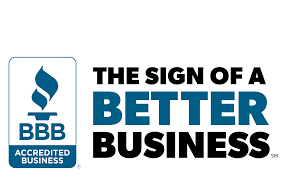UNENFORCEABLE HOA RULES? WHAT TO DO ABOUT THEM?
September 8, 2023

Before you can understand unenforceable HOA rules, you must first know what HOA rules are. Simply put, HOA rules are rules that members of an HOA community must follow. These rules exist to regulate members’ behavior within the association.
Some people use HOA rules and HOA covenants interchangeably. You can find HOA covenants within your association’s Covenants, Conditions, & Restrictions (CC&Rs). These dictate the association’s and the members’ obligations and rights. In essence, both HOA rules and HOA covenants dictate what homeowners (and the HOA) can and can’t do.
You must then realize the extent of an HOA’s authority. Are neighborhood covenants enforceable? Generally speaking, yes. Both HOA covenants and rules are legally binding and enforceable. There are some exceptions to this statement, though. Some rules can be unenforceable.
But, how do you distinguish the unenforceable HOA rules from the enforceable ones? Rules are deemed unenforceable if they fall under one or more of the following categories:
- Violates rights or breaches laws
- No power to act
- Enacted incorrectly
- Enforced inconsistently or selectively
UNENFORCEABLE HOA RULE #1: VIOLATES RIGHTS OR BREACHES LAWS
Federal and state laws, including constitutional rights, take precedence over all of an association’s governing documents. Therefore, when a rule violates the law, it is unenforceable. Typical HOA rules that fall under this category often have to do with the following:
FREEDOM OF SPEECH
Homeowners and HOAs usually butt heads when it comes to freedom of speech. Commonly, the two areas of concern are political speech and displays of patriotism, particularly when it comes to signs.
Many associations restrict what types of signs homeowners can display, with some even banning all types. In some states, though, associations don’t have much power to do so. For example, in Maryland, HOAs may not prevent homeowners from posting political signs on their own property near election time.
The best course of action for HOAs is to only restrict the number, size, and location of political signs. Associations can also allow such displays only prior to and immediately following an election.
Flags are also a point of contention among associations and homeowners. But, thanks to the Freedom to Display the American Flag Act of 2005, HOAs generally can’t prohibit homeowners from displaying the American flag. They can, however, limit the size of the flag.
DISCRIMINATION
The Federal Fair Housing Act prevents associations from discriminating against homeowners and potential homeowners based on their race, religion, national origin, sex, familial status, and/or disability. Therefore, a rule banning women from the gym during certain hours directly goes against this act.
Some states have also enacted laws that provide further defense for protected classes. In California, for instance, the law extends to gender identity as well as sexual orientation.
RIGHT TO BEAR ARMS
The Second Amendment remains a hot topic in the United States. For homeowners associations, though, the general rule is that they can’t disallow residents from owning guns. This is one of the homeowners rights against HOA. But, the association can restrict weapons in open or communal spaces. After all, residents have a right to feel safe within their own community.
RELIGIOUS FREEDOM
The Fair Housing Act and several state laws protect homeowners’ right to religious freedom. Therefore, homeowner association rules that discriminate against a particular religion are unenforceable.
An HOA may have a rule that restricts religious displays or activities in a common area. If the language does not single out a specific religion, then it is enforceable. In this case, the rule or covenant might indirectly interfere with religious practice, but it is applied equally to all religions.
OTHER FEDERAL OR STATE LAWS
There are several other rules that might breach federal or state laws and are, therefore, unenforceable.
- Right to Dry. In many states, HOAs can’t prohibit homeowners from hanging laundry on a clothesline.
- OTARD Rule. The FCC’s Over-the-Air Reception Devices Rule prevents HOAs from banning satellites or antennas.
- Landscaping. In a few states, homeowners should have the ability to use synthetic grass or plants that don’t require much water in their landscaping.
UNENFORCEABLE HOA RULE #2: NO POWER TO ACT
If the HOA holds no authority to act on a certain rule, then the rule may be unenforceable. Fines are a great example to demonstrate this. Can a homeowners association fine you? Yes, in general, HOAs can impose a fine when homeowners violate a rule. But, can an association fine you just because? That is a different story. The HOA can only impose fines for violations provided the governing documents or state laws allow it.
UNENFORCEABLE HOA RULE #3: ENACTED INCORRECTLY
It is also worth looking at how a rule was put in place. Typically, an HOA records its covenants and rules in the declaration at incorporation. Such rules usually don’t pose a problem.
Can an HOA change rules after purchase? If you just bought a home that belongs in an HOA community, don’t expect the rules to remain the same forever. It is not uncommon for HOAs to amend their governing documents. In fact, many associations continue to change or add to their rules.
But, there is a right way to create a new rule or change an existing one. Similar to the HOA’s authority, you will find the proper enactment procedure within state laws and the association’s governing documents. If the HOA changes a rule or makes a new one without following procedures, then it is unenforceable.
For example, Georgia law states that associations must obtain a super-majority vote from the membership to approve any amendments to the declaration. Your HOA may also have set stipulations for amending its governing documents, such as a written petition or notice requirements.
UNENFORCEABLE HOA RULE #4: ENFORCED INCONSISTENTLY OR SELECTIVELY
Is your HOA not enforcing rules equally? Does your HOA fail to follow the proper procedures and pre-requisites when enforcing a rule? Then, there is a good chance those rules are unenforceable.
State laws and most HOA governing documents outline the procedural requirements associations must comply with when enforcing a rule. Usually, this involves sending written notice and providing the homeowner with an opportunity to be heard by the board. When such procedural requirements are not met or are applied inconsistently, the homeowner can challenge the enforcement of the rule.
Selective enforcement is another problem many associations fall victim to. Some boards will apply a rule to one homeowner but not the other. This type of enforcement also happens when boards apply some rules but ignore other rules.
Can I sue HOA for selective enforcement? Homeowners have a right to take legal action against their HOA for selective enforcement. But, keep in mind that you will need to prove that selective enforcement took place, which is often difficult to do. Additionally, the litigation process can take a lot of time and cost a lot of money. HOA boards typically have insurance to cover their defense fees as well.
JUST “ENFORCEABLE” IS NOT ALWAYS BEST
It is not enough to have rules that are enforceable. The rules in your HOA should also be good, which means they must exist for the betterment of the community. But, how do you determine whether a rule is good or not?
First of all, good rules must be fair and reasonable. Even without the rule in place, common sense should dictate that it is the right thing to do. Good rules are also efficient in that they achieve their purpose. HOA boards must also make sure the rules are understandable and easy to follow.
STAY AWAY FROM VAGUE LANGUAGE
Unenforceable HOA rules are not just ones that blatantly go against the law. Some rules may be considered as such if they contain vague language. Vague language can create all sorts of misunderstandings. And rules with unclear terms can cause more problems for both the board and homeowners.
HOA boards should make every rule as clear and direct as possible. Use terms like “You must…” or “You shall…” to convey the mandatory nature of the rule. Don’t beat around the bush.
Additionally, some rules consist of terms such as “nuisance” or “unappealing.” Unfortunately, these terms leave much room for interpretation. To remedy this, HOAs should include language that gives the board sole discretion when it comes to deciding what are nuisances or what counts as unappealing.
WHAT CAN HOMEOWNERS DO?
Contrary to what some might believe, HOAs don’t possess almighty powers that make them impervious to homeowner action. When you encounter some unenforceable HOA rules, there are a number of ways you can defend yourself or bring the matter to the board’s attention.
- Talk to the Board. Start expressing your concern regarding the unenforceable nature of the rule. You can do this in-person or by writing a formal letter. Use a professional tone and be careful not to place blame on anyone. In many cases, a sincere reaching-out can change the board’s judgment.
- Dispute Resolution. Some state laws and governing documents require that homeowners undergo a dispute resolution process prior to filing a lawsuit. You can do this through mediation or arbitration.
- Take Legal Action. If worse comes to worst, you may need to begin legal proceedings. You can challenge the validity of the rule/s in question in state court (or federal court if it breaches the Fair Housing Act).
YOU CAN ALWAYS ASK FOR HELP
Homeowners associations should not have any unenforceable HOA rules. To ensure this, board members must see to it that HOA rules don’t violate any laws or homeowner rights.
They must also make sure they have the authority to enforce these rules as well as enact or amend rules according to the proper procedures set forth by state laws and the governing documents. Finally, to avoid problems, boards must always enforce rules consistently and uniformly.







Leave a Reply